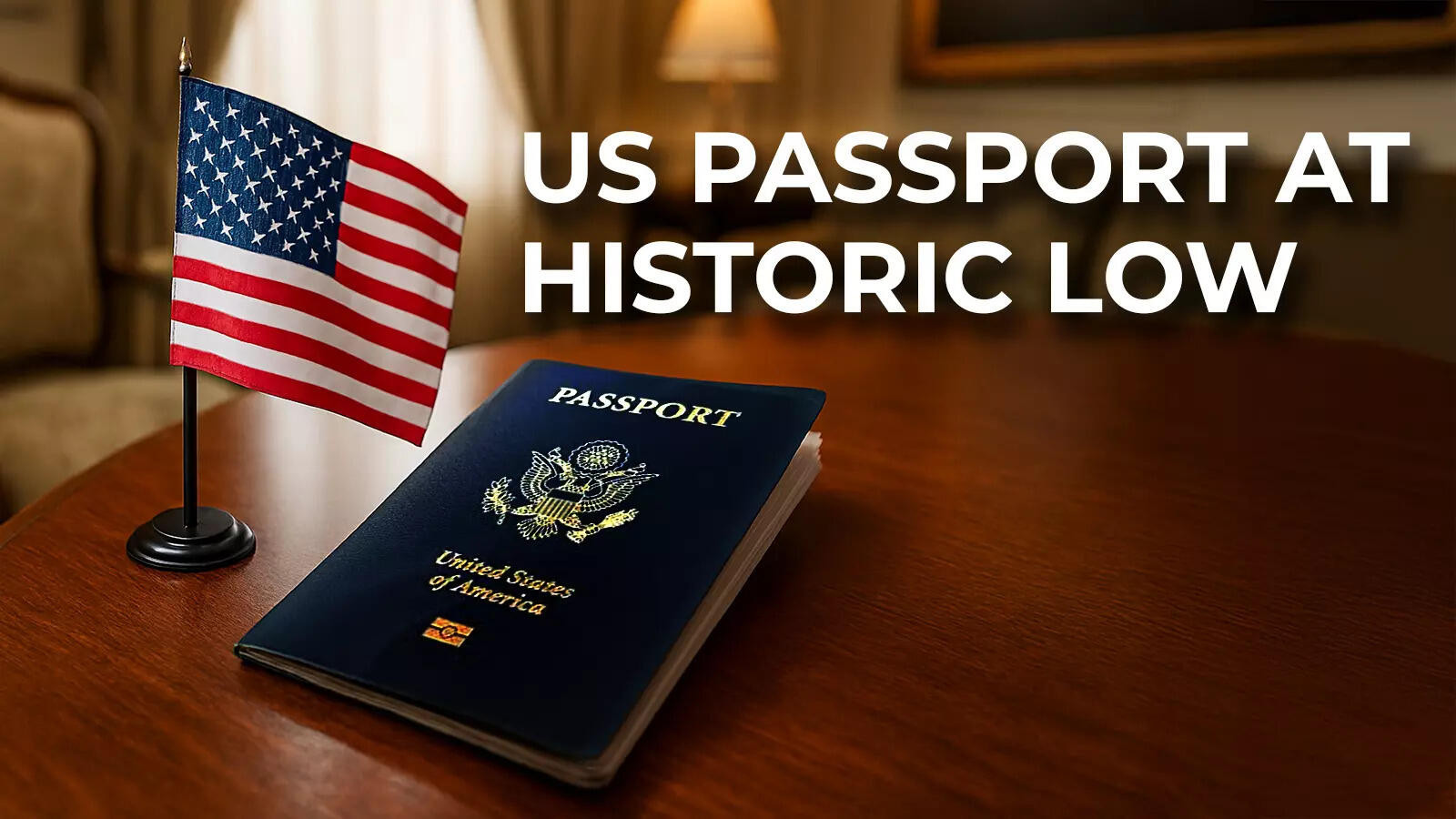For the first time in two decades, the US passport has fallen out of the top 10 most powerful, now sharing 12th place with Malaysia. This decline, attributed to various access restrictions and an inward-looking policy, contrasts with China’s significant gains in global mobility and influence.
Has America Lost Its Passport Power? A Deeper Dive
For years, the American passport was practically a golden ticket, unlocking visa-free travel to a vast swathe of the globe. It represented freedom, opportunity, and a certain level of global influence. But something’s shifted. The latest Henley Passport Index rankings tell a surprising story: the U.S. has slipped out of the top 10 most powerful passports in the world, landing at number 11. What’s behind this decline, and what does it mean for American travelers?
Let’s unpack this. The Henley Passport Index isn’t just some arbitrary list. It’s a well-respected ranking based on data from the International Air Transport Association (IATA), analyzing how many destinations passport holders can access without a prior visa. It’s a real-time snapshot of a passport’s perceived “power.” The American passport’s fall from grace reflects a complex interplay of geopolitical factors, visa agreements, and perhaps even a changing perception of the U.S. on the world stage.

The Numbers Don’t Lie: Understanding the Ranking of Most Powerful Passports
While the U.S. passport still grants visa-free access to a significant 184 destinations, other nations have surged ahead. Singapore, for instance, currently holds the top spot, offering its citizens visa-free entry to a remarkable 194 destinations. Several European countries, including Spain, France, Germany, and Italy, also consistently rank higher than the United States. This isn’t just about bragging rights; it directly impacts travel convenience and global mobility for citizens.
The dip in the US ranking of most powerful passports wasn’t a sudden plunge. It’s been a gradual trend, reflecting a shift in global power dynamics and evolving relationships between countries. Nations actively negotiate visa waiver agreements to foster tourism, trade, and cultural exchange. When other countries successfully broker these deals and the U.S. doesn’t, the relative power of the American passport diminishes.
Geopolitics and the American Passport: A Tangled Web
The reasons for America’s decline are multifaceted. Geopolitical tensions can undoubtedly play a role. Strained relationships between the U.S. and certain countries might make visa negotiations more difficult. Furthermore, internal political factors and shifts in immigration policies can also influence how other nations perceive the value of the American passport. Consider, for instance, how changes in immigration policies might affect other countries’ willingness to extend visa-free travel privileges to American citizens.
Moreover, there is the issue of reciprocity. Visa agreements are often based on mutual benefit. If American visa policies become more restrictive for citizens of a particular country, that country might reciprocate by tightening its visa requirements for Americans. This back-and-forth dynamic can have a significant impact on passport power.
What Does This Mean for American Travelers?
The immediate impact for most American travelers may be minimal. Gaining access to 184 countries without a visa is still a considerable advantage. However, the trend is worth noting. It signifies that the U.S. can’t take its passport’s power for granted. If the decline continues, it could eventually lead to more complex travel planning, increased visa application fees, and longer wait times for American citizens.
The key takeaway here is awareness. American travelers should stay informed about the visa requirements of their desired destinations and be prepared for potential changes. While the U.S. passport remains a valuable travel document, its relative power is no longer unchallenged.
To learn more about travel safety and security tips, check out our article on [safe international travel tips](internal-link-to-relevant-article).
Looking Ahead: Reclaiming Passport Power
Can the U.S. reverse this trend? Absolutely. Strengthening diplomatic ties, actively pursuing visa waiver agreements with more countries, and fostering a more welcoming global image could all contribute to reclaiming passport power. It’s about proactively engaging in the global community and demonstrating a commitment to mutual exchange and collaboration. The status of the most powerful passports is in constant flux. By focusing on these areas, the U.S. can work towards enhancing the convenience and global mobility of its citizens once again.







